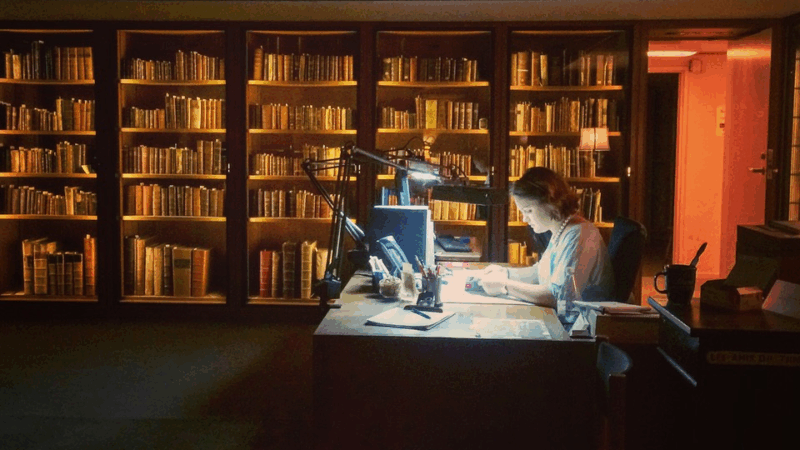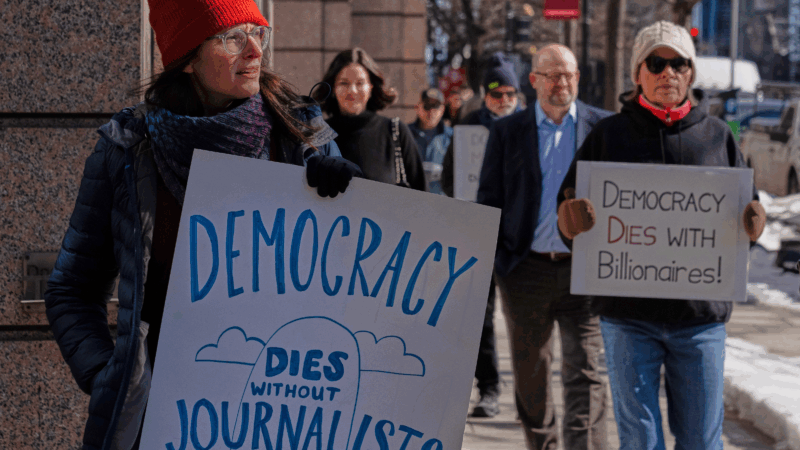A new documentary checks out the many ways libraries are a ‘Free For All’
The new PBS Independent Lens documentary about America’s public library system arrives with a very clever, two-edged title: Free for All: The Public Library.
The “Free for All” part refers, of course, to the beauty and generosity of the library system, which lends books, for free, to virtually anyone. But “Free for All” also refers to the many fights surrounding that idealistic institution: fights against segregated libraries; the banning of books; tax cuts and local library closures; targeted reductions of federal funds; and, quite recently and famously, “Drag Queen Story Hour.”
Free for All is co-directed by Dawn Logsdon, who also narrates, and Lucie Faulknor. At first, it sets out as a nostalgic memoir, with Logsdon explaining why and how, as a child, her parents took her on road trips traversing the entire country — always stopping at local libraries along the way.
But then, like a road trip that keeps heading to new places, this documentary ends up covering all sorts of ground. The historical beginnings of American libraries, with nods to Ben Franklin and Andrew Carnegie. The growth and importance of tiny branches in rural communities. And, at each stop, a focus on individual libraries, librarians and everyday patrons.
One librarian given a lot of air time, and due credit, is Ernestine Rose, who arrived in New York City in 1904 as a newly trained librarian. The city and its inhabitants thrilled her — but also made her wonder how she could best serve such a diverse, and largely illiterate, immigrant population.

By 1920, Rose was serving as the branch librarian for Harlem’s 135th Street Library. Thanks to the generous contribution of a collector who donated his vast personal library of books written by Black authors or about Black and other minority cultures, this particular library fueled what came to be known as the Harlem Renaissance. Sculptors and painters held art classes and honed their craft in basement spaces set aside for just that purpose. Local theater productions and workshops were held in other spaces in that same basement, launching the careers of such talents as Sidney Poitier and Harry Belafonte. And upstairs, the Harlem residents reading the library books included other future talents, such as author James Baldwin.
Those are just a few of the stories. Free for All tells many, many more, painting a portrait that is personal, passionate, and, in the end, unapologetically supportive. By examining the value of libraries in the distant and recent past, Free for All: The Public Library also makes a compelling case about their value today. It’s a very informative, and ultimately very persuasive, documentary about the legacy and importance of the American public library system. My recommendation is that you really should … check it out
Pentagon says it’s cutting ties with ‘woke’ Harvard, ending military training
Amid an ongoing standoff between Harvard and the White House, the Defense Department said it plans to cut ties with the Ivy League — ending military training, fellowships and certificate programs.
‘Washington Post’ CEO resigns after going AWOL during massive job cuts
Washington Post chief executive and publisher Will Lewis has resigned just days after the newspaper announced massive layoffs.
In this Icelandic drama, a couple quietly drifts apart
Icelandic director Hlynur Pálmason weaves scenes of quiet domestic life against the backdrop of an arresting landscape in his newest film.
After the Fall: How Olympic figure skaters soar after stumbling on the ice
Olympic figure skating is often seems to take athletes to the very edge of perfection, but even the greatest stumble and fall. How do they pull themselves together again on the biggest world stage? Toughness, poise and practice.
They’re cured of leprosy. Why do they still live in leprosy colonies?
Leprosy is one of the least contagious diseases around — and perhaps one of the most misunderstood. The colonies are relics of a not-too-distant past when those diagnosed with leprosy were exiled.
This season, ‘The Pitt’ is about what doesn’t happen in one day
The first season of The Pitt was about acute problems. The second is about chronic ones.







